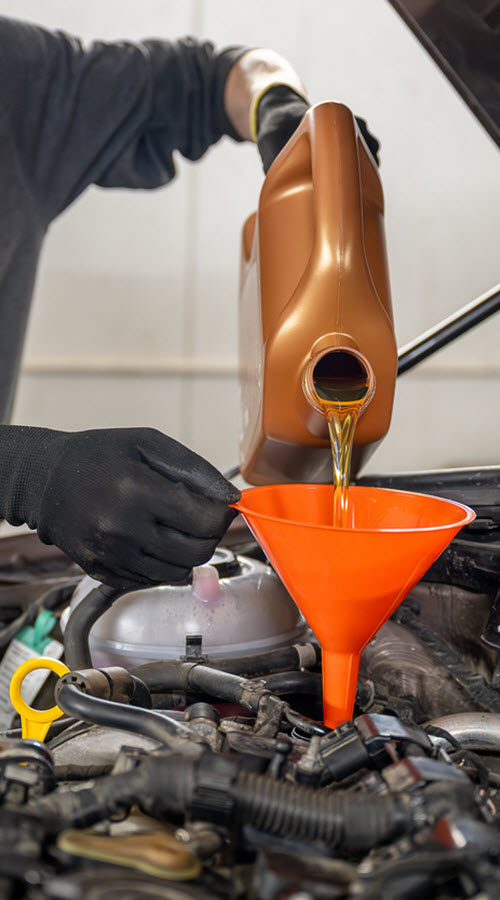Fluid Checks and Changes
Fluid Checks and Changes
Checks and Changes of Important Car Fluids in Dallas and Atlanta
If you have ever witnessed a marathon, you would have seen marathon runners grabbing energy drinks to boost their endurance. Similarly, if a car is properly maintained with its fluids, it will perform efficiently on the roads. Just as you wouldn’t ignore a low fuel warning, you shouldn’t ignore the levels and condition of your car’s fluids. Get your car checked by professionals like us to assess its condition. However, how do you know which fluids to check and when to replace them?
At the European Service Center, located in Dallas and Atlanta, we will guide you on why regular fluid checks and changes are essential for your vehicle and how to properly maintain it.

Common Car Fluids and Their Functions
Regular fluid checks are essential for maintaining your car’s health. To deal with all the heat, the engine relies on a few critical fluids to lubricate moving parts and keep them cool. Here is a breakdown of those fluids,
Engine Oil
Engine oil is one of the most crucial substances in your car’s engine. Engine oil lubricates moving parts and keeps engine temperatures within a normal range. If the engine oil levels drop to a minimum and are not addressed immediately, it may lead to complete system failure. You should always follow the owner’s manual to learn the process of checking the engine oil. Expert technicians at the European Service Center, located near you in Alpharetta and Dallas Cedar Springs, suggest checking the oil at least once a month, or more frequently if your car burns or leaks oil, and changing the oil every 5,000 to 7,000 miles.
Coolant
As the name indicates, the coolant regulates engine temperature. By absorbing heat and dissipating it through the radiator, coolant prevents excessive heat buildup and keeps the engine safe. It also prevents the engine from freezing in cold weather. A low coolant level can lead to overheating and engine damage. Coolant has a longer lifespan than engine oil and should be changed every 30,000 miles. ASE-certified mechanics at any of our garages located near you in Atlanta, Piedmont, and Highland Rock check your coolant level every time you take your car in for an oil change.
Brake Fluid
Brake fluids transmit the driver’s force from the brake pedals down to the braking system to stop the car. Over time, and after continuous use, the brake fluid absorbs moisture from the air, making the brakes less effective due to contamination. The brake fluid must be between the “MIN” and “MAX” lines on the brake fluid gauge. If the fluids drop below the “MIN” line, there is a risk of stiffness in the brakes or failure of the entire center. The brake fluid should be changed at least once every two years and should be checked every 5,000 to 7,000 miles, or at each oil change. If your vehicle’s brakes feel spongy, visit any of our garages located near you in Duluth or Houston.
Transmission Fluid
Transmission fluid lubricates and cools the moving components in your car’s gear system. It also functions as a hydraulic fluid, allowing the transmission computer to operate individual mechanical parts. Over time, after continuous use, the transmission fluid becomes dirty and its level drops, resulting in rough shifting and even transmission failure. The transmission fluid should be changed every 30,000 to 60,000 miles for a manual transmission and 60,000 to 100,000 miles for an automatic transmission.
Power-Steering Fluid
Power steering fluid makes it easy to manipulate the steering column, allowing for the smooth turns we all love in our cars. It makes the steering responsive and smooth. Low or contaminated fluid can cause the steering to be stiff or noisy. The process for checking the steering fluid involves locating the reservoir and comparing the fluid level to the “MIN” and “MAX” marks. The easiest way to keep your steering optimal is to fill the fluid at each oil change service and carry a spare jug with you to refill when needed.
FAQs

 Texas
Texas
